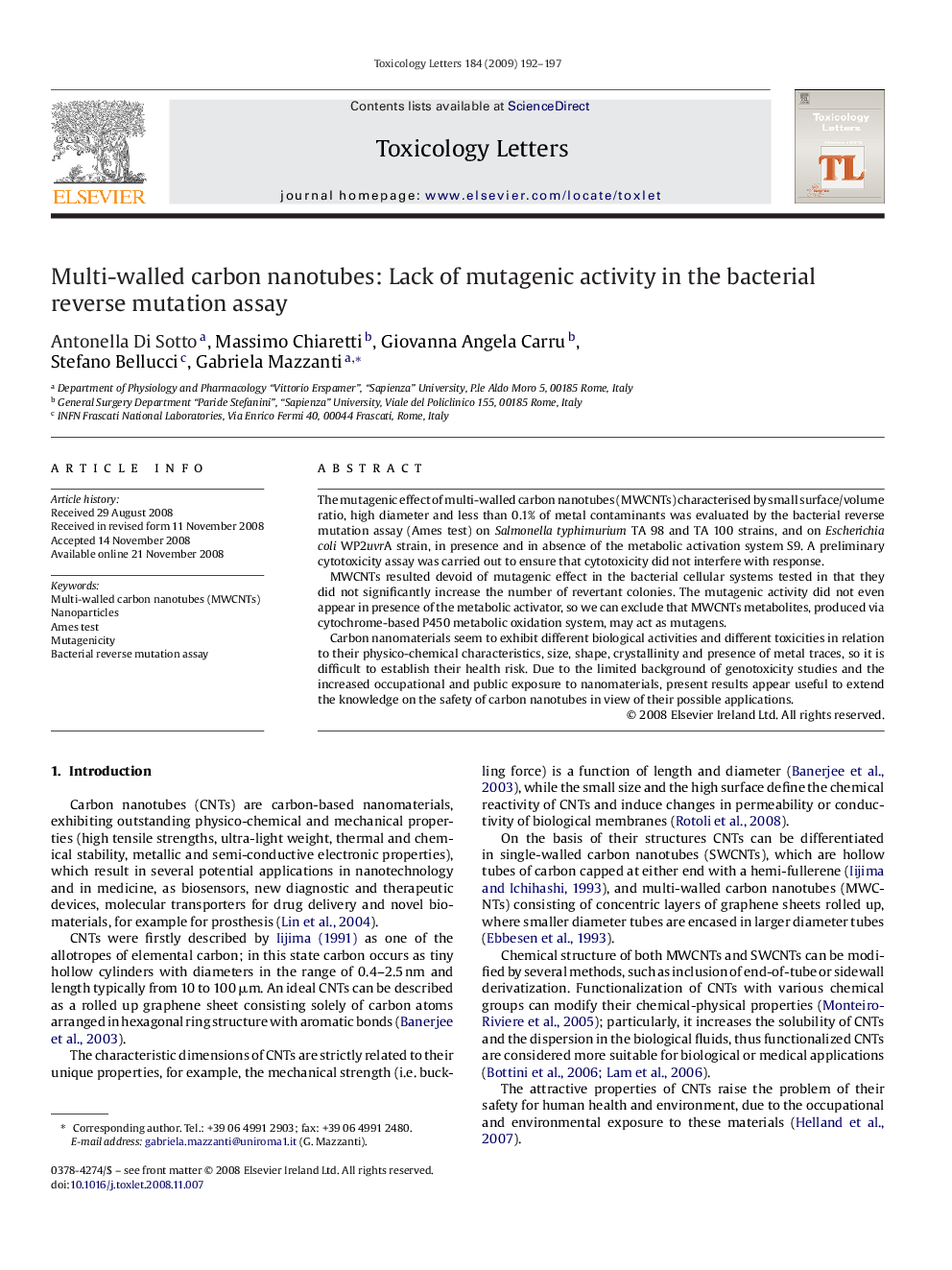| Article ID | Journal | Published Year | Pages | File Type |
|---|---|---|---|---|
| 2601268 | Toxicology Letters | 2009 | 6 Pages |
The mutagenic effect of multi-walled carbon nanotubes (MWCNTs) characterised by small surface/volume ratio, high diameter and less than 0.1% of metal contaminants was evaluated by the bacterial reverse mutation assay (Ames test) on Salmonella typhimurium TA 98 and TA 100 strains, and on Escherichia coli WP2uvrA strain, in presence and in absence of the metabolic activation system S9. A preliminary cytotoxicity assay was carried out to ensure that cytotoxicity did not interfere with response.MWCNTs resulted devoid of mutagenic effect in the bacterial cellular systems tested in that they did not significantly increase the number of revertant colonies. The mutagenic activity did not even appear in presence of the metabolic activator, so we can exclude that MWCNTs metabolites, produced via cytochrome-based P450 metabolic oxidation system, may act as mutagens.Carbon nanomaterials seem to exhibit different biological activities and different toxicities in relation to their physico-chemical characteristics, size, shape, crystallinity and presence of metal traces, so it is difficult to establish their health risk. Due to the limited background of genotoxicity studies and the increased occupational and public exposure to nanomaterials, present results appear useful to extend the knowledge on the safety of carbon nanotubes in view of their possible applications.
